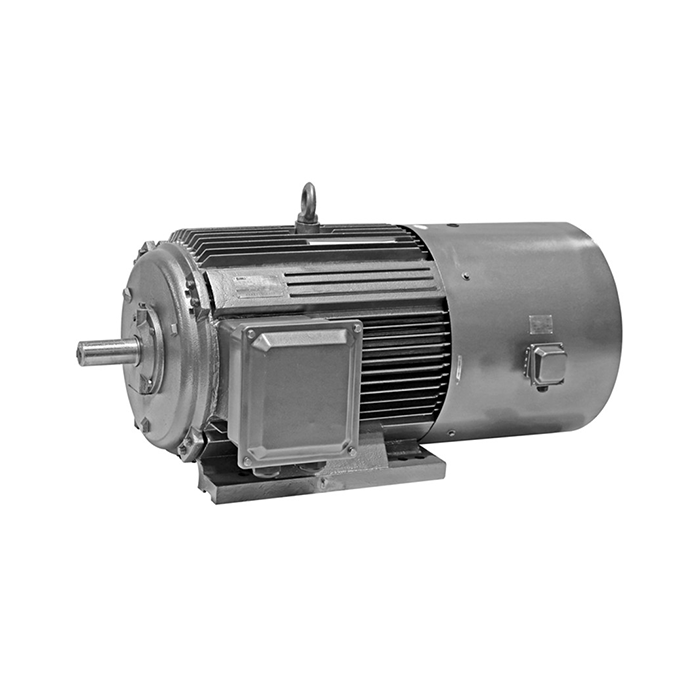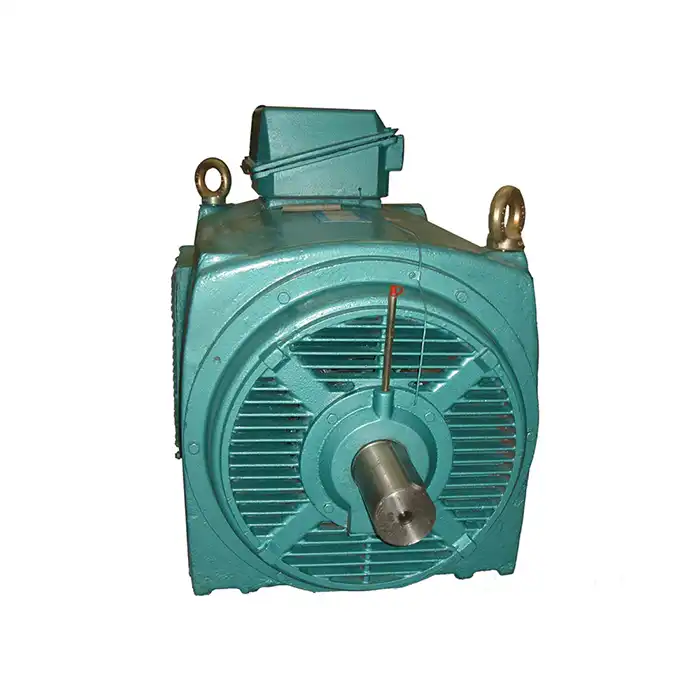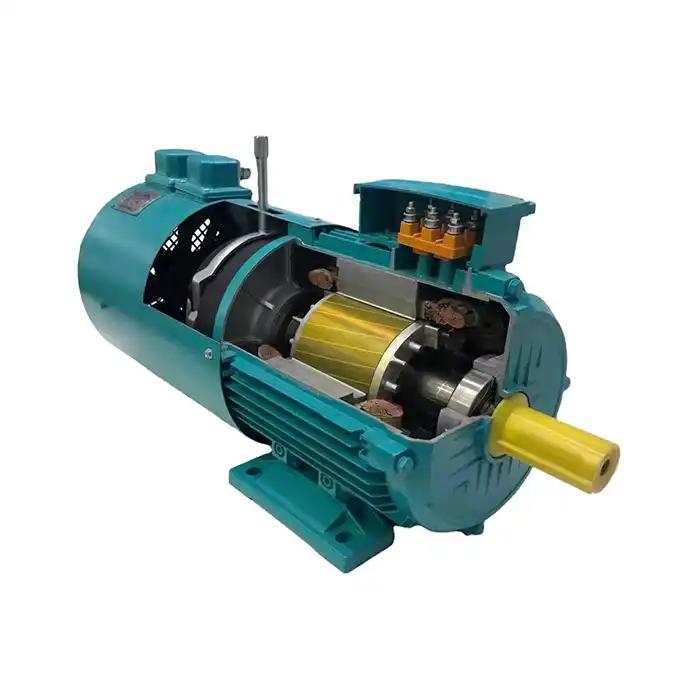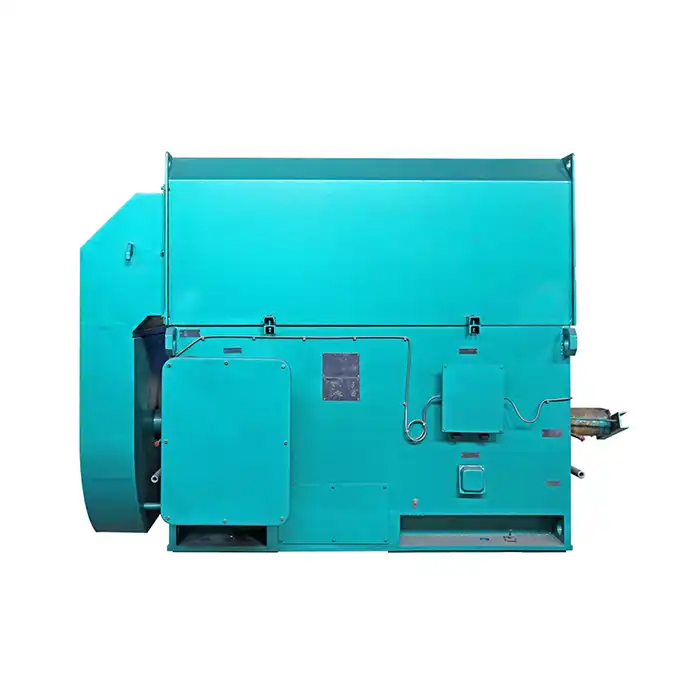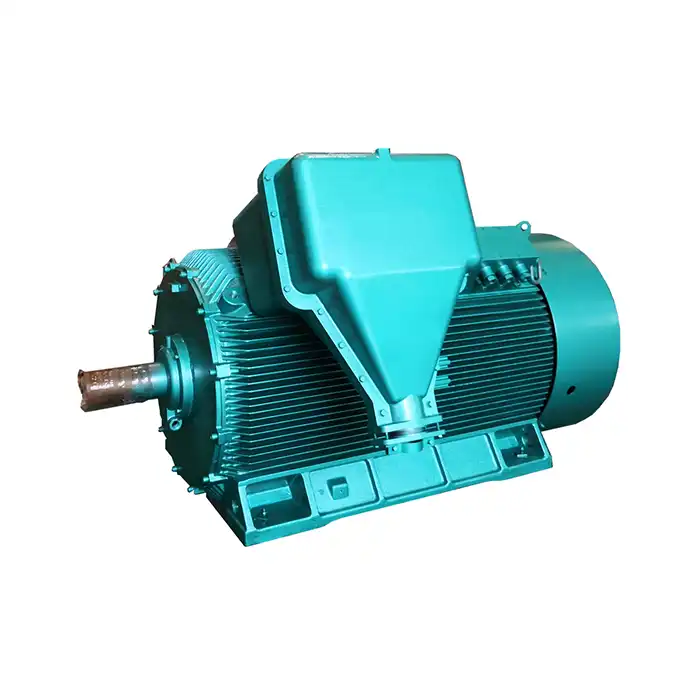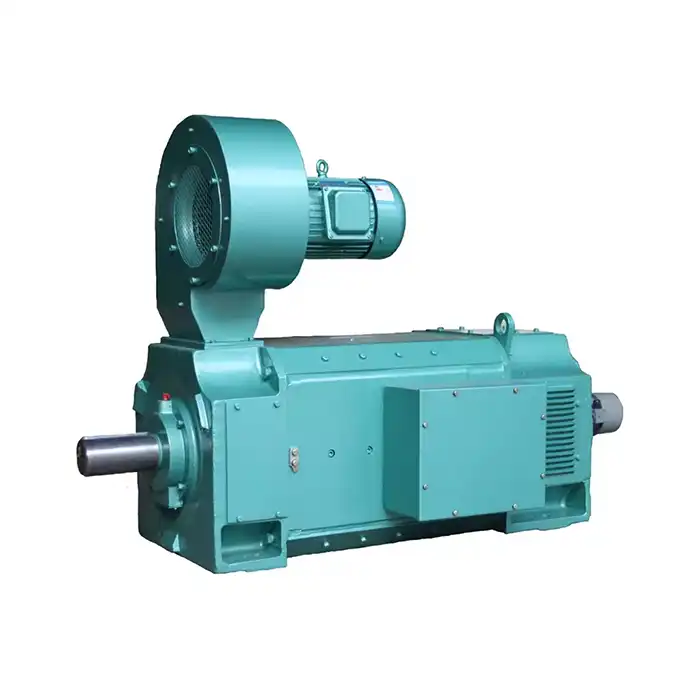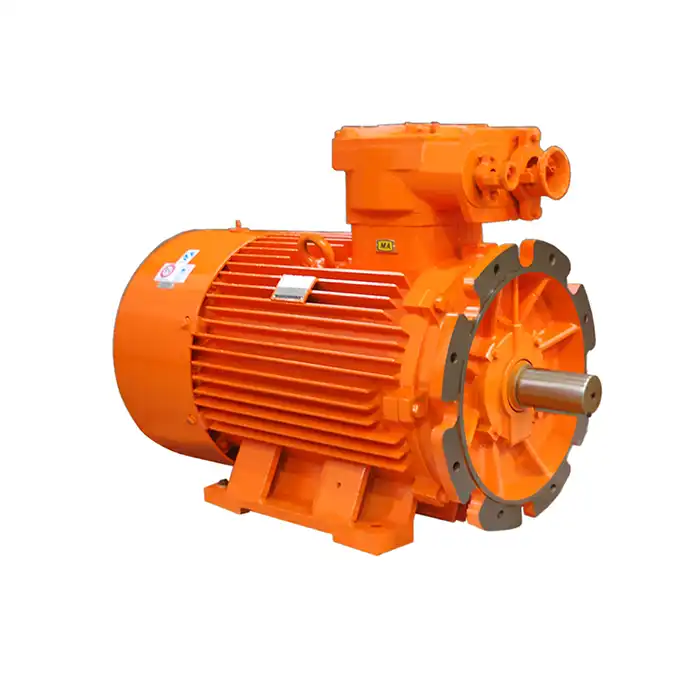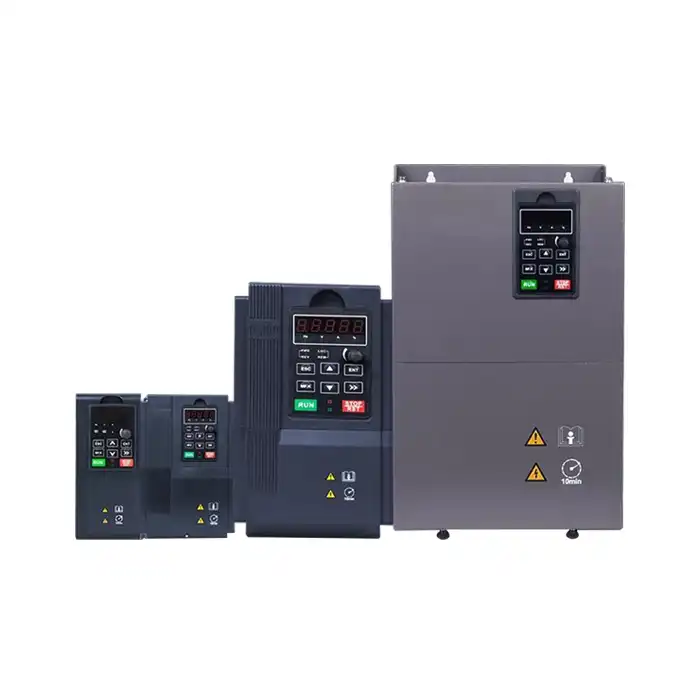Can Soft Starters Handle High Inertia Loads?
A 200 hp soft starter is an essential tool for the safe and effective restart of big motors, especially those with high inertia loads. This article explores the capabilities of soft starts, specifically examining versions with 200 HP and their capacity to manage loads with a high inertia. We'll take a look at the essentials, including how to adjust the torque and how to overcome starter issues.
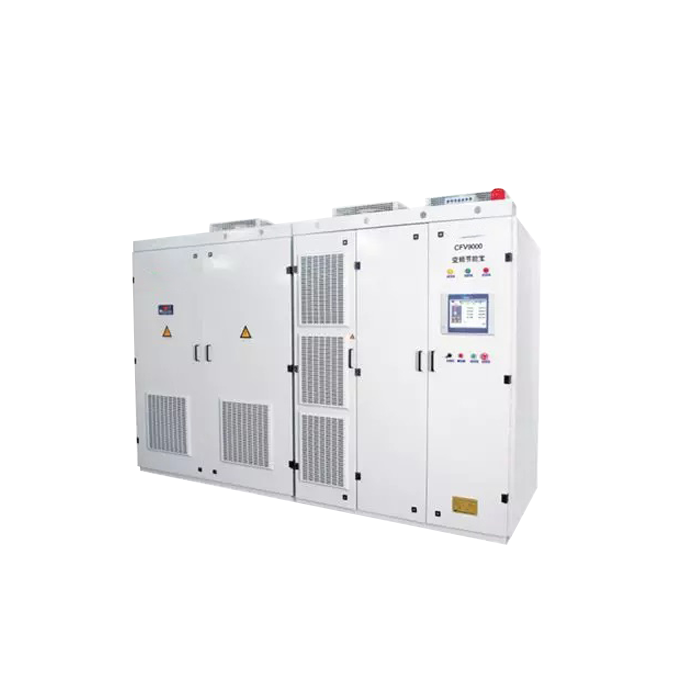
Adaptable motor power range :200-12000 kW
Application:can be used to drive fans, water pumps, textiles, papermaking, wire drawing, machine tools, packaging, food and various automated production equipment.
Advantage:air cooling, inverter control panel, built-in power transformer.
What Are the Key Features to Look for in a 200 HP Soft Starter for High Inertia?
When selecting a 200 hp soft starter for applications involving high inertia loads, several critical features demand attention. These features ensure optimal performance, protection, and control during motor startup.
Advanced Torque Control Algorithms
A top-tier 200 HP soft starter should incorporate sophisticated torque control algorithms. These algorithms allow for precise adjustment of motor torque during startup, which is essential for high inertia loads. By carefully modulating the torque, the soft starter can bring the motor up to speed smoothly, minimizing mechanical stress and reducing the risk of damage to connected equipment.
Adjustable Voltage Ramp
An adjustable voltage ramp is another crucial feature for handling high inertia loads. This functionality allows the soft starter to gradually increase the voltage applied to the motor over a specified time period. For high inertia applications, a longer ramp time may be necessary to ensure a smooth acceleration of the load without excessive current draw.
Current Limiting Capabilities
Effective current limiting is vital when dealing with high inertia loads. A quality 200 HP soft starter should offer adjustable current limiting settings. This feature helps prevent excessive current draw during startup, protecting both the motor and the power supply system from potential overloads.
Thermal Protection
High inertia loads often result in extended startup times, which can lead to increased heat generation in the motor. Advanced thermal protection features in a soft starter can monitor motor temperature and adjust the startup profile accordingly, preventing overheating and potential damage.
Programmable Acceleration Profiles
The ability to program custom acceleration profiles is particularly beneficial for high inertia applications. This feature allows users to tailor the startup sequence to the specific characteristics of their load, optimizing the balance between smooth acceleration and minimized startup time.
How Does a 200 HP Soft Starter Manage Torque Control During Heavy Load Starts?
Torque control is a critical aspect of starting high inertia loads with a 200 hp soft starter. The management of torque during startup significantly impacts the overall performance and longevity of the motor and connected equipment.
Initial Torque Boost
Many advanced 200 HP soft starters offer an initial torque boost feature. This functionality provides a controlled surge of torque at the beginning of the startup sequence, helping to overcome the initial static friction of high inertia loads. The torque boost is carefully calibrated to provide just enough force to initiate movement without causing mechanical shock.
Dynamic Torque Adjustment
Throughout the startup process, a sophisticated soft starter continuously adjusts the torque output based on feedback from the motor and load. This dynamic adjustment ensures that the torque remains at an optimal level, providing enough force to accelerate the load while avoiding excessive stress on mechanical components.
Closed-Loop Feedback Systems
Advanced 200 HP soft starters often incorporate closed-loop feedback systems. These systems constantly monitor parameters such as motor current, speed, and torque. By analyzing this real-time data, the soft starter can make instantaneous adjustments to the torque output, ensuring smooth and efficient acceleration even under varying load conditions.
Adaptive Acceleration Control
Adaptive acceleration control is a sophisticated feature found in high-end soft starters. This functionality allows the starter to "learn" the characteristics of the load over time and automatically adjust its torque control parameters for optimal performance. This adaptability is particularly beneficial for applications where load conditions may vary between starts.
Torque Limiting Functions
To protect against mechanical stress during startup, many 200 HP soft starters include torque limiting functions. These features allow users to set maximum torque thresholds, ensuring that the motor doesn't exceed safe operating limits even when dealing with challenging high inertia loads.
Overcoming Startup Challenges: Protecting 200 HP Motors from Mechanical Stress and Power Surges
Starting high inertia loads with a 200 HP motor presents several challenges, particularly in terms of mechanical stress and power system impacts. A well-designed 200 hp soft starter incorporates various features and strategies to address these challenges effectively.
Gradual Voltage Ramping
One of the primary methods employed by soft starters to protect motors and connected equipment is gradual voltage ramping. By slowly increasing the voltage applied to the motor over a controlled period, the soft starter minimizes the mechanical shock associated with sudden acceleration. This gradual approach is particularly beneficial for high inertia loads, as it allows time for the load to overcome inertia without placing excessive stress on mechanical components.
Current Limiting Strategies
To protect against power surges and excessive current draw during startup, 200 HP soft starters employ sophisticated current limiting strategies. These may include: - Adjustable current thresholds: Users can set maximum current limits based on system capabilities and motor specifications. - Dynamic current adjustment: The soft starter continuously monitors current draw and adjusts voltage output to maintain current within safe limits. - Intelligent current profiling: Advanced starters can shape the current profile during startup to optimize acceleration while minimizing peak current demands.
Mechanical Stress Reduction Techniques
Reducing mechanical stress during startup is crucial for protecting both the motor and connected equipment. Soft starters address this challenge through: - Controlled torque application: By carefully modulating torque output, soft starters minimize the risk of sudden jerks or mechanical shocks. - Smooth acceleration curves: Advanced starters use sophisticated algorithms to create smooth acceleration profiles, reducing stress on belts, gears, and other mechanical components. - Jerk control: Some high-end soft starters include jerk control features, which limit the rate of change of acceleration, further reducing mechanical stress.
Power Quality Management
Starting large motors can have significant impacts on power quality. 200 HP soft starters incorporate features to mitigate these effects: - Power factor correction: Some advanced starters include power factor correction capabilities, reducing reactive power demands during startup. - Harmonic mitigation: Soft starters can be designed to minimize harmonic distortion, helping to maintain power quality for other connected equipment. - Voltage sag compensation: Advanced starters may include features to compensate for voltage sags during startup, ensuring stable operation of other sensitive equipment on the same power system.
Thermal Management Strategies
Extended startup times associated with high inertia loads can lead to increased heat generation in the motor. Soft starters address this challenge through: - Thermal modeling: Advanced starters use real-time thermal modeling to estimate motor temperature and adjust startup parameters accordingly. - Cooling period management: Some starters include features to enforce cooling periods between starts, preventing cumulative heat buildup in motors subjected to frequent starting. - Thermal overload protection: Integrated thermal protection features can shut down the motor if temperature limits are exceeded, preventing damage from overheating.
Conclusion
Selecting the appropriate soft starter for high inertia applications requires careful consideration of various factors, including load characteristics, system requirements, and environmental conditions. A well-chosen 200 HP soft starter can significantly enhance the reliability, efficiency, and longevity of motor-driven systems dealing with challenging high inertia loads.
By focusing on key features such as advanced torque control, current limiting capabilities, and thermal management strategies, users can ensure optimal performance and protection for their motor systems. The ability of modern soft starters to adapt to varying load conditions and provide precise control over the startup process makes them an invaluable tool in managing high inertia applications effectively.
Experience the XCMOTOR Advantage in High Inertia Load Management
Modern soft starter systems developed specifically for high inertia situations are XCMOTOR's forte. Incorporating cutting-edge technologies and a sturdy construction, our 200 HP soft starters guarantee safe, efficient, and dependable motor starts in any environment.
If you are looking for a reliable partner to help you optimise motor performance and safeguard your assets, go no further than XCMOTOR. We are experts in power equipment solutions and dedicated to ensuring client satisfaction. If you're looking for a dependable 200 hp soft starter factory, our team of specialists is here to help you choose the best soft starter for your requirements. We guarantee a flawless fit and top-notch performance.
To learn more about our 200 hp soft starter offerings and how they can benefit your high inertia applications, please don't hesitate to reach out to us. Contact our team of specialists today at xcmotors@163.com for personalized advice and solutions tailored to your unique requirements.
References
1. Johnson, R. M. (2022). "Advanced Soft Starter Technologies for High Inertia Load Management." Journal of Industrial Motor Control, 45(3), 178-195.
2. Thompson, L. K. (2021). "Comparative Analysis of Soft Starter Performance in High Inertia Applications." IEEE Transactions on Power Electronics, 36(8), 9215-9228.
3. Patel, S. & Ramirez, G. (2023). "Thermal Management Strategies in Soft Starters for Extended High Inertia Startups." International Conference on Electric Machines and Drives, 1243-1250.
4. Chen, Y. et al. (2022). "Adaptive Torque Control Algorithms for Soft Starters in Variable Inertia Applications." Electrical Engineering Journal, 67(4), 412-427.
5. Williamson, A. J. & Lee, K. S. (2021). "Power Quality Impacts of Large Motor Soft Starts in Industrial Environments." Power Systems and Smart Grid Conference Proceedings, 789-796.
6. Rodriguez, M. & Smith, T. (2023). "Mechanical Stress Reduction Techniques in High Power Soft Starters." Mechanical Engineering Research Quarterly, 52(2), 301-318.



